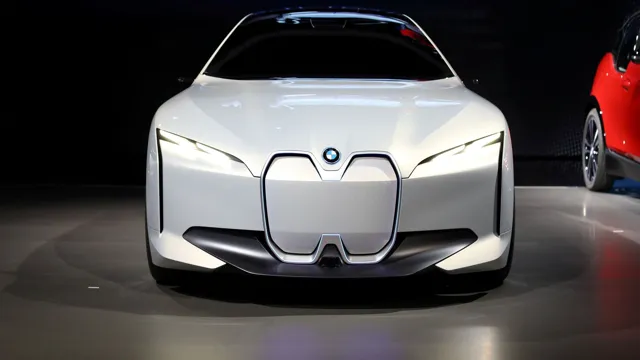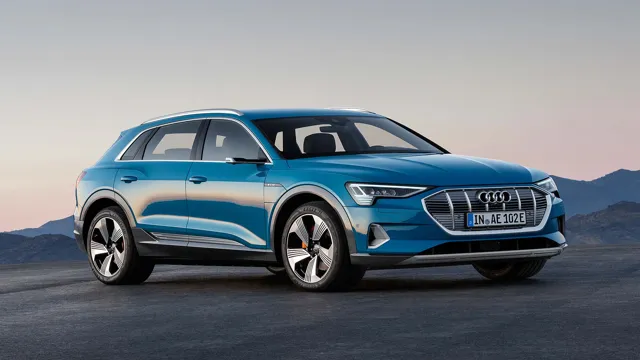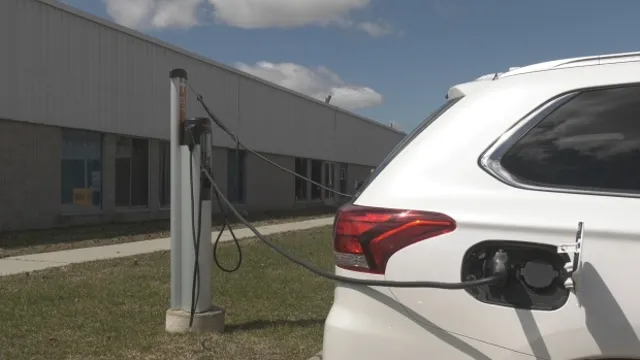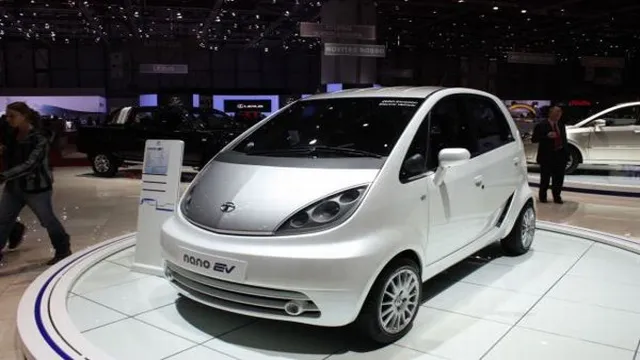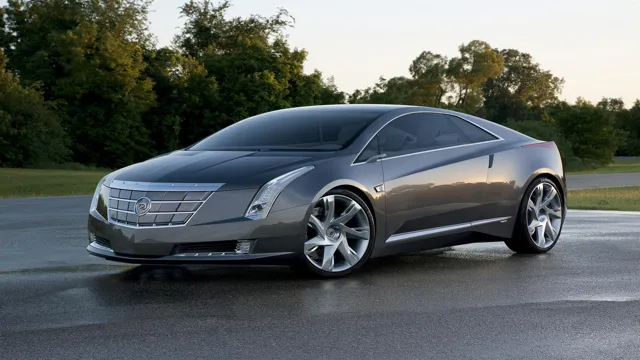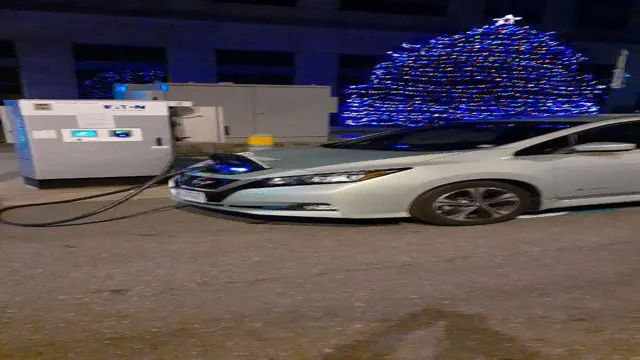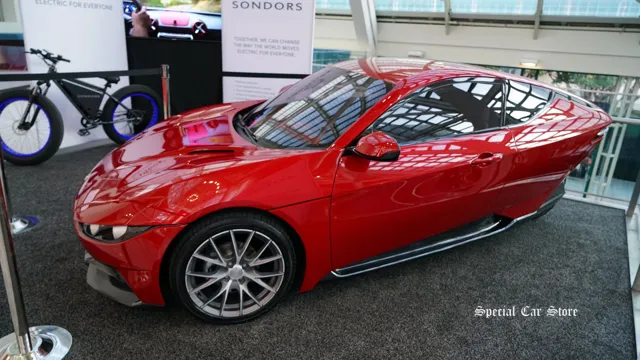Revolutionizing the Roads: Latest News and Updates on Electric Cars in India
Get ready to witness the road revolution as electric cars are making their way in India! In recent years, there has been a lot of buzz about electric cars, and for all the right reasons. These vehicles are eco-friendly, energy-efficient, and low-maintenance. With the Indian government announcing new policies to promote electric mobility, the demand for such vehicles has been on the rise.
The good news is, various automobile manufacturers are gearing up to launch electric cars in India, and there are several latest developments in the news. As the Indian electric mobility market is growing rapidly, many global vehicle makers are eyeing this opportunity to launch their latest electric models in India. From Tata Nexon EV, Mahindra eKUV100 to MG ZS EV, there are several electric cars available in the Indian market.
These cars are equipped with advanced features and technology to provide optimum performance and driving experience. The Indian government is also taking progressive steps to promote electric mobility by offering incentives and setting up electric vehicle charging stations across the country. The demand for electric cars has witnessed a sudden surge, and with more and more people opting for these eco-friendly cars, it is expected to grow exponentially in the coming years.
It’s not just about being environmentally responsible anymore; buying an electric car often offers long-term financial benefits as well. So, if you are thinking of making the shift to electric cars, now might be the perfect time! Stay tuned to keep up with the latest news and updates on electric cars in India.
Overview of Electric Car Market
Electric cars have been making a lot of news lately in India, and for good reason. As concerns over air pollution and the need for more sustainable modes of transportation continue to grow, the market for electric cars has seen significant growth over the past few years. With the government offering incentives and subsidies for electric vehicles, more and more car manufacturers are entering the electric car market in India.
Notable names include Tesla, Mahindra, Hyundai, and Tata, who are all vying for a slice of the pie. The perks of electric cars include lower running costs, reduced emissions, and a quieter ride. However, there are still challenges to be faced, such as a lack of charging infrastructure, high initial costs, and range anxiety.
Nevertheless, the future of the electric car market in India looks promising, and it’s an exciting time for those interested in sustainable and greener forms of transportation.
Growth of Electric Cars in India
The electric car market in India is steadily growing, albeit at a slower pace compared to some other countries. The electric vehicle industry has received an impetus in recent years with the government offering subsidies and incentives to promote cleaner and greener transportation. The Indian government has set a target of achieving 30% electric vehicle penetration by 2030.
However, the EV adoption rate is still hindered by concerns such as range anxiety, high initial costs, and lack of adequate charging infrastructure. Despite these challenges, some major automobile players such as Tata Motors and Mahindra have already launched their electric car models in India. Other international players such as Hyundai and MG Motors have also made their entry into the Indian market.
The electric car market has the potential to boom in India with the government’s continued push for electric mobility and private players investing in R&D to bring affordable and efficient electric vehicles to the masses.
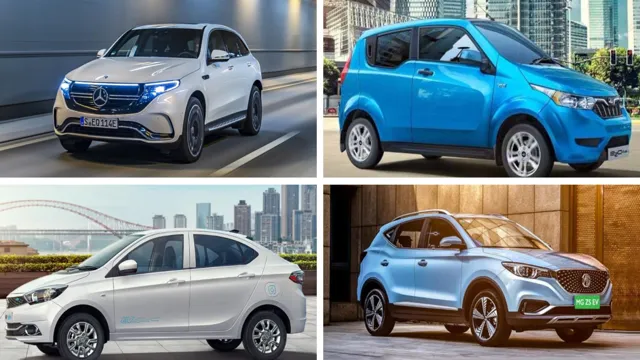
Indian Government Initiatives for E-Cars
The electric car market in India has been slowly gaining momentum over the years, with the government taking several initiatives to promote the use of electric vehicles. The National Electric Mobility Mission Plan (NEMMP) was launched in 2013 to promote the adoption of electric and hybrid cars in the country. The government has also introduced several schemes and incentives to encourage the manufacturing and purchase of electric vehicles, such as the Faster Adoption and Manufacturing of Hybrid and Electric Vehicles (FAME) India scheme.
Additionally, the Goods and Services Tax (GST) rate on electric vehicles has been reduced to 5%, making them more affordable for consumers. Despite these efforts, the adoption of electric cars in India has been slow due to various factors such as lack of charging infrastructure, higher cost of batteries, and limited model availability. However, with the government’s continued efforts and the increasing demand for sustainable transportation, the electric car market in India is expected to grow in the coming years.
Top Electric Cars in India
Are you curious about the latest news about electric cars in India? With the rising trend towards sustainable living, the electric vehicle market in India has been growing swiftly. Some of the top electric cars in India include the Tata Nexon EV, MG ZS EV, and Hyundai Kona Electric. These cars offer long-range capabilities, powerful performance, and advanced features such as regenerative braking and fast-charging capabilities.
The Tata Nexon EV, for instance, boasts an impressive range of 312km on a single charge, while the Hyundai Kona Electric has a range of 452km. Additionally, the Indian government has implemented various incentives and subsidies to encourage the adoption of electric vehicles in the country, making it easier and more affordable for consumers. The future of electric cars in India seems bright, offering a promising solution to reducing carbon emissions and combating climate change.
Features of Tata Nexon EV
Electric cars are quickly becoming a popular choice for eco-conscious individuals in India, and one of the best options on the market is the Tata Nexon EV. This sleek and stylish vehicle has a range of up to 312 km on a single charge, making it perfect for longer journeys. It also boasts fast-charging capabilities, with 80% charge taking just 60 minutes with a DC fast charger.
But the Nexon EV isn’t just about practicality; it also has a host of features to make your driving experience even more enjoyable. These include a spacious cabin with comfortable seats, a touchscreen infotainment system, and a sleek, modern design that’s sure to turn heads. With the Tata Nexon EV, you can have an environmentally-friendly vehicle without sacrificing style or performance.
Mahindra eKUV100: The Entry-level EV
Electric Cars in India India has been picking up on the global call for embracing electric vehicles. The Mahindra eKUV100 is a compact and affordable EV option ideal for city driving. With a range of 147km on a single charge, it caters to people with average daily commutes.
Its electric motor propels it from 0-60mph in under ten seconds, making it an excellent fit for city driving. Moreover, it’s compact size makes it easy to park in congested urban environments. It comes equipped with safety features such as ABS (Anti-lock Braking System) and airbags.
With eco-friendly alternatives readily available, it’s hard to see why people would opt for gas-powered vehicles. As more and more automakers embrace the green revolution, we can witness a cleaner, more sustainable future for our planet.
Performance of Hyundai Kona Electric
The Hyundai Kona Electric is one of the top-performing electric cars available in India. With its sleek design and impressive range of 452 km on a single charge, it has quickly gained popularity among eco-conscious consumers. The Kona Electric boasts a powerful electric motor that can accelerate from zero to 100 km/h in just
7 seconds. Its suspension system provides a comfortable ride, while its regenerative braking system helps improve its overall energy efficiency. Additionally, its advanced safety features, such as lane-keeping assist, blind-spot warning, and forward-collision warning, make it a reliable and safe option for drivers.
With zero emissions and low operating costs, the Hyundai Kona Electric is a sustainable alternative to traditional gas-powered vehicles.
Charging Infrastructure in India
Electric cars are becoming more popular in India as the government has implemented policies and incentives to encourage people to switch to clean energy. However, the lack of charging infrastructure is a major obstacle for many potential electric car owners. Fortunately, there have been recent developments in this area.
Last year, Tata Power announced plans to install 700 charging stations across the country by 202 In addition, private companies like Fortum and Ather Energy are also investing in building charging infrastructure. The Indian government is also working on a scheme to install charging stations every 25 km along major highways.
These initiatives are expected to increase the convenience and accessibility of electric cars in India, making them a viable option for more people. Overall, the future looks bright for electric cars in India, and these recent developments in charging infrastructure are a positive step towards a cleaner and greener transportation system in the country.
Status of EV Charging Stations in India
The growth of electric vehicles in India has undoubtedly been remarkable in recent years. However, for the sector to thrive, adequate charging infrastructure is critical. Fortunately, India’s charging infrastructure is expanding rapidly to accommodate EVs.
As of 2021, there are about 1,800 public EV charging stations installed across India, and the number is expected to increase to 2,50,000 by 2030. The Government of India has also taken several initiatives to encourage the establishment of charging infrastructure, such as the FAME India scheme, which provides financial incentives to charging station providers. As a result, private and public entities are collaborating in setting up charging stations across the country.
The private sector is also contributing substantially to establishing charging infrastructure, with companies like Tata Power and EESL installing EV charging stations in different Indian cities. Additionally, the Indian government has announced that all future public charging stations must conform to Bharat Standard (EVCS-001) to ensure the overall safety, performance, and reliability of the charging infrastructure. These developments reflect India’s determination to foster an EV-friendly environment and herald an exciting future for the sector.
Upcoming EV Charging Stations in India
India is finally buckling up to the electric vehicle (EV) revolution, with an increasing number of companies taking the initiative to set up EV charging infrastructure across the country. While the Indian government has already set an ambitious target of achieving 100% electric vehicle sales by 2030, the country is still struggling to build an adequate charging network for its EVs. However, the scenario is changing rapidly, and many new charging stations are expected to come up soon with improved facilities, higher power outputs, and increased accessibility.
Many private and public companies, including government-backed Energy Efficiency Services Limited (EESL), Tata Power, and the Ministry of Power, are working together to establish new and robust charging infrastructure in major metropolitan areas of India. With the speedy rollout of these stations, electric vehicle owners in India can now be assured of finding a charging point wherever their journey takes them, contributing to a cleaner and sustainable future for all.
Future of Electric Cars in India
There’s exciting news about electric cars in India, as the government has set an ambitious target of having all vehicles on Indian roads powered by electricity by 2030. This goal has spurred many global automobile manufacturers to focus their efforts on developing electric vehicles suitable for Indian roads and customers. While the demand for electric cars is currently low due to higher prices and limited charging infrastructure, the future looks bright.
With the government offering various incentives such as reduced GST rates and tax benefits, electric car ownership is becoming more appealing to the general public. Additionally, many major cities in India are working to improve their EV charging networks, further boosting demand. As more and more Indian consumers turn towards eco-friendly alternatives, the electric vehicle market is bound to see substantial growth.
With a flurry of EV models set to hit the Indian market in the coming years, it’s an exciting time for electric cars in the country.
Conclusion
In conclusion, the winds of change are blowing through India’s automotive industry as the government sets ambitious targets for electrification. With the recent surge in demand for electric cars and the increasing availability of charging infrastructure, India is well on its way to achieving a greener, cleaner future. From stylish hatchbacks to rugged SUVs, electric cars in India are revolutionizing the way we commute and reducing our carbon footprint.
So, why wait? It’s time to plug in and drive into a brighter future!”
FAQs
What is the current state of electric cars in India?
The electric car market in India is still in its nascent stage, with a relatively small number of electric cars available in the market. However, the government has set a target of achieving 30% electric mobility by 2030, which is expected to drive the growth of the electric car market in the country.
What are some of the challenges of owning an electric car in India?
One of the biggest challenges of owning an electric car in India is the lack of charging infrastructure. The charging stations are few and far between, limiting the range of electric cars and making it difficult to undertake long-distance journeys. Additionally, the high cost of electric cars and their batteries is another major challenge that is holding back the adoption of these vehicles.
What are the incentives provided by the government to promote electric cars in India?
The Indian government has introduced a number of incentives to promote the adoption of electric cars in the country. These include tax exemptions, subsidies, and incentives for manufacturers to set up manufacturing facilities in India. Additionally, the government has set up an ambitious plan to build a network of charging stations across the country.
Which are some of the popular electric cars available in India?
Some of the popular electric cars available in India include the Tata Nexon EV, MG ZS EV, Hyundai Kona Electric, and Mahindra e-Verito. These cars offer a range of around 300 kilometers on a single charge, making them suitable for daily commutes and city driving.
